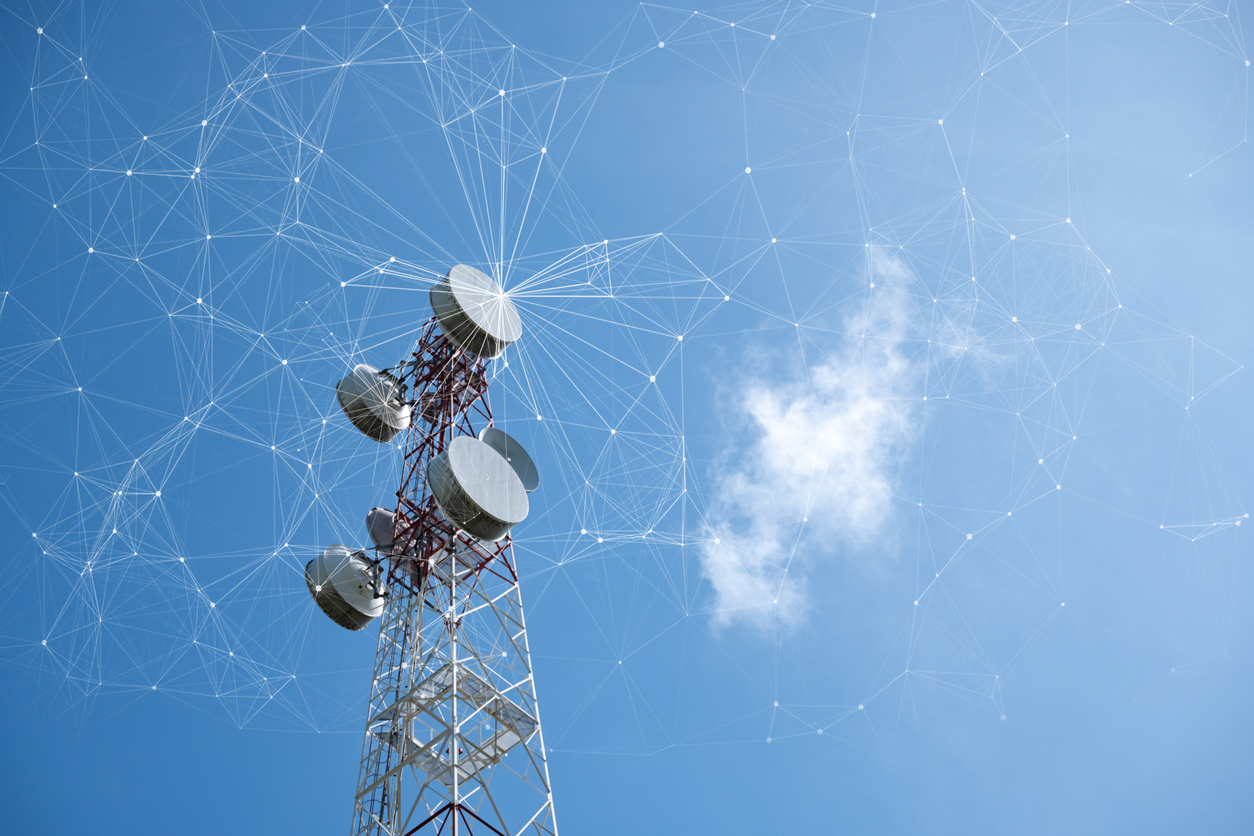The Importance of Regular Telecommunication Mast Inspections in Nigeria
The Importance of Regular Telecommunication Mast Inspections in Nigeria
In a country as vast and diverse as Nigeria, the importance of regular telecommunication mast inspections cannot be overstated. From ensuring connectivity in remote areas to preventing accidents and disruptions, these inspections play a crucial role in maintaining the integrity of the country’s telecommunications infrastructure. Join us as we explore why these inspections are essential for keeping Nigeria connected and safe.
Introduction to Telecommunication Masts in Nigeria
Introduction to Telecommunication Masts in Nigeria
Telecommunication masts are essential structures used for transmitting and receiving wireless communication signals. They act as a bridge between telecommunication service providers and their customers, enabling the transfer of voice, data, and video over long distances.
In Nigeria, these masts play a crucial role in providing reliable and efficient communication services to millions of people across the country. From remote villages to bustling cities, telecommunication masts have become an integral part of everyday life in Nigeria.
The first telecommunication mast was installed in Nigeria in 1985 by NITEL (Nigerian Telecommunications Limited). Since then, with the rapid advancement of technology and increased demand for better connectivity, the number of telecommunication masts has significantly increased. Today, there are thousands of masts spread across the country.
These masts vary in size and height depending on their location and purpose. Some are standalone structures while others are attached to buildings or other infrastructure. The most common types include monopoles, self-supporting towers, guyed towers, rooftop poles, and camouflaged towers.
Telecommunication masts serve multiple functions such as supporting antennas for cellular networks (2G/3G/4G), radio stations (FM/AM), television broadcasting (DTH/DVB-T/T2), satellite dishes (VSAT/C-Band/Ku-Band), public address systems (PA/GSM-R), weather monitoring devices (meteorology radars) and more.
They also provide support for other vital services such as emergency communication systems for disaster management agencies like NEMA (National Emergency Management Agency) and NDCC (National Disaster Communications Centre).
Apart from their primary function of facilitating wireless communication services, these masts also contribute significantly to the economy by creating job opportunities through installation, maintenance, security services among others.
However, with their increasing numbers comes the need for regular inspections to ensure they remain safe, reliable, and efficient. The next section of this blog article will discuss the importance of regular inspections for telecommunication masts in Nigeria.
The Importance of Regular Inspections for Telecommunication Masts
In Nigeria, telecommunication masts play a crucial role in providing reliable and efficient communication services to millions of people. As such, it is essential that these structures are regularly inspected to ensure their proper functioning and safety.
Regular inspections are necessary for telecommunication masts due to several reasons. Firstly, these structures are exposed to various environmental factors such as extreme weather conditions, corrosion, and wear and tear over time. These elements can weaken the structural integrity of the mast and compromise its ability to withstand strong winds and other adverse conditions.
Moreover, telecommunication masts support heavy equipment such as antennas, transmitters, and receivers. Without proper maintenance and inspection, these components can malfunction or fail completely, leading to disruptions in communication services. Regular inspections can identify any potential issues with the equipment before they escalate into major problems.
Furthermore, regular inspections also help prevent accidents or injuries caused by faulty or damaged masts. In recent years, there have been incidents involving collapsed telecommunication masts resulting in damage to property and even loss of lives. These accidents could have been prevented if the masts were properly inspected and maintained on a regular basis.
Besides safety concerns, regular inspections also ensure that the telecommunication infrastructure is up-to-date with industry standards and regulations. With advancements in technology happening at a rapid pace, it is crucial for telecommunication companies to conduct regular inspections to assess if their mast’s design meets current standards. This ensures that the structure can support newer equipment without compromising its stability or causing interference with other signals.
Moreover, regular inspections also help detect unauthorized modifications or installations on the mast by third parties. Such alterations may not only pose a risk but also result in legal consequences for the owner of the mast.
Regular inspections for telecommunication masts are vital for ensuring public safety, maintaining reliable communication services, staying compliant with industry standards and regulations, preventing accidents or damages caused by faulty equipment or unauthorized modifications. It is the responsibility of telecommunication companies to prioritize regular inspections and maintenance for their masts to ensure uninterrupted and safe communication services for the people of Nigeria.
Understanding Telecommunication Mast Integrity Inspections
Telecommunication masts are critical infrastructure in the telecommunication industry, serving as support structures for antennas and other equipment necessary for the transmission of signals. These masts are exposed to various environmental factors such as extreme weather conditions, corrosion, and structural fatigue, which can compromise their integrity over time. This is why regular mast inspections are crucial to ensure their safety and functionality.
Understanding telecommunication mast integrity inspections involves a thorough evaluation of the structure’s overall condition, including its foundation, tower structure, and components such as guy wires and mounting brackets. The inspection process typically involves visual assessment, non-destructive testing techniques, and structural analysis.
Visual assessment is an essential part of mast inspections as it allows inspectors to identify any visible signs of damage or deterioration. This includes looking for rust or corrosion on the structure’s surface, cracks or deformations on the tower’s steel components, loose bolts or connections, and damaged guy wires. Any abnormalities found during this stage will require further investigation using more advanced techniques.
Non-destructive testing (NDT) techniques are used to evaluate the internal condition of a mast without causing any damage to its structure. These methods include ultrasonic testing (UT), radiography testing (RT), magnetic particle inspection (MPI), and eddy current testing (ECT). UT uses high-frequency sound waves to detect flaws within the material while RT uses X-rays or gamma rays to capture images of internal defects in metal structures. MPI uses magnetic fields to locate surface defects in ferromagnetic materials like steel while ECT detects surface cracks by inducing electrical currents into conductive materials.
Structural analysis is another crucial aspect of telecommunication mast integrity inspections that involves evaluating the structural design against current codes and standards to determine its load-carrying capacity. It also takes into consideration factors such as wind speed, ice loading, antenna weight distribution, and soil conditions surrounding the mast.
Regular telecommunication mast inspections not only ensure their safety but also help identify potential issues before they become major problems. Neglecting routine inspections can lead to severe structural damage, resulting in costly repairs, service disruptions, or even collapse, posing a threat to public safety.
In Nigeria, where the telecommunication industry is rapidly growing and mast installations are increasing, regular inspections are crucial. It is the responsibility of telecommunication companies and tower owners to conduct frequent inspections and address any issues promptly to ensure the integrity of their masts. By understanding the importance of these inspections and their role in maintaining safe and functional telecommunications infrastructure, we can ensure reliable communication services for everyone.
Wigmore Trading: A Leader in Telecommunication Mast Inspections in Nigeria
Wigmore Trading, a reputable company based in Nigeria, has established itself as a leader in providing telecommunication mast inspection services. With years of experience and a team of highly skilled professionals, Wigmore Trading has become the go-to choice for many telecommunications companies in Nigeria.
One of the primary reasons why Wigmore Trading is considered a leader in this field is their commitment to quality and thoroughness in their inspections. They understand the critical role that telecommunication masts play in maintaining communication networks and ensuring uninterrupted service to customers. Any malfunction or damage to these masts can lead to significant disruptions, which can have severe consequences for both businesses and individuals.
To ensure the safety and reliability of telecommunication masts, Wigmore Trading conducts regular inspections using state-of-the-art equipment and techniques. This includes visual inspections, structural analyses, radio frequency testing, and other specialized methods. They also adhere to strict safety protocols to ensure the well-being of their team members while carrying out inspections at various heights.
Wigmore Trading’s team consists of qualified engineers and technicians who are trained specifically for mast inspections. They have extensive knowledge about different types of masts used in Nigeria and are well-versed with industry standards and regulations. This enables them to identify potential issues or weaknesses that may compromise the structural integrity of the mast.
Moreover, Wigmore Trading understands that timely detection of any issue is crucial in preventing bigger problems down the line. That’s why they follow a proactive approach by conducting regular inspections rather than waiting for visible damages or malfunctions to occur. This not only saves time but also reduces costs associated with major repairs or replacements.
In addition to their technical expertise, Wigmore Trading also prides itself on its exceptional customer service. They work closely with their clients to understand their specific needs and tailor their inspection services accordingly. Their reports are detailed yet easy to comprehend, containing all necessary information along with recommendations for any necessary repairs or maintenance.
Wigmore Trading has established itself as a leader in telecommunication mast inspections in Nigeria due to its commitment to quality, use of advanced techniques, and customer-centric approach. By partnering with them for regular mast inspections, telecommunication companies can ensure the safety and reliability of their networks, ultimately leading to better service delivery for their customers.
Benefits of Choosing Wigmore Trading for Mast Inspections
When it comes to telecommunication mast inspections, choosing the right company for the job is crucial. In Nigeria, one of the most trusted and reliable companies for mast inspections is Wigmore Trading. With years of experience in the industry and a team of highly trained professionals, Wigmore Trading offers numerous benefits that make them stand out from other inspection companies.
1. Expertise and Experience:
Wigmore Trading has been providing top-notch mast inspection services for over 10 years. Their team consists of certified engineers who have extensive knowledge and experience in conducting thorough inspections on various types of telecommunication masts. This expertise allows them to identify any potential issues or hazards with precision and provide effective solutions.
2. Advanced Technology:
At Wigmore Trading, they understand the importance of staying up-to-date with technological advancements in order to provide accurate results. That’s why they use cutting-edge equipment such as drones, thermal imaging cameras, and specialized software to conduct their inspections. This not only ensures more efficient and detailed inspections but also guarantees accuracy in identifying any structural defects or damages.
3. Compliance with Regulations:
Mast inspections are not just important for the safety of individuals but also to comply with government regulations. Failure to adhere to these regulations can result in hefty fines and legal consequences for telecommunication companies. With Wigmore Trading’s thorough inspections, you can rest assured that your masts are compliant with all necessary regulations.
4. Cost-Effective Solutions:
Regular mast inspections by Wigmore Trading can save you money in the long run by preventing costly repairs or replacements due to neglected maintenance issues or damages that could have been detected earlier on.
5 . Timely Inspections:
One of the major advantages of choosing Wigmore Trading is their prompt response time when it comes to scheduling inspections. They understand that time is valuable for businesses, especially those in the telecommunication industry where downtime can lead to significant financial losses. That’s why they prioritize timely inspections to minimize any disruption to your operations.
6. Detailed Reports:
After completing an inspection, Wigmore Trading provides a detailed report that includes all findings and recommendations for maintenance or repairs. These reports are easy to understand and contain visual evidence such as pictures and videos, making it easier for clients to make informed decisions about the necessary actions.
Choosing Wigmore Trading for your mast inspections not only ensures compliance with regulations but also offers numerous benefits such as cost-effective solutions, advanced technology, and timely inspections. Don’t compromise on the safety of your masts and choose Wigmore Trading for reliable and efficient mast inspections in Nigeria.
How to Schedule a Telecommunication Mast Inspection with Wigmore Trading
Scheduling a telecommunication mast inspection with Wigmore Trading is a simple and straightforward process. Our company understands the importance of regular inspections for telecommunication masts in Nigeria, and we have made it our priority to make the scheduling process as convenient as possible for our clients.
The first step to scheduling an inspection is to contact Wigmore Trading either through phone or email. Our friendly and knowledgeable staff will be more than happy to assist you with any questions or concerns you may have regarding the inspection process.
Once you have contacted us, we will gather important information about your telecommunication mast, such as its location, height, and any specific concerns or issues you may have noticed. This information will help us determine the type of inspection that would best suit your needs.
We offer two types of inspections – visual inspections and detailed inspections. Visual inspections are recommended every 6 months while detailed inspections should be done annually. Visual inspections involve a thorough visual examination of the external parts of the mast, including antennas, cables, support structures, and other components. Detailed inspections involve a more comprehensive assessment that includes testing and measurement of equipment performance.
After determining the type of inspection needed for your mast, we will work with you to find a suitable date and time for our team to visit your site. We understand that disruptions can be costly for businesses relying on telecommunications services; therefore, we strive to schedule our visits at times that are most convenient for you.
On the day of the scheduled inspection, our team of experienced professionals will arrive at your site fully equipped with all necessary tools and equipment. They will conduct a thorough evaluation according to industry standards and regulations while also taking into consideration any specific requirements from your end.
Upon completion of the inspection, our team will provide you with a detailed report outlining their findings along with recommendations for any necessary repairs or maintenance measures that need to be taken.
Scheduling a telecommunication mast inspection with Wigmore Trading is a hassle-free process. We prioritize the safety and efficiency of your telecommunications infrastructure, and our team of experts will work diligently to ensure that your mast is in excellent condition. Don’t wait until an issue arises, schedule your inspection today and reap the benefits of a well-maintained telecommunication mast.
Case Studies: Real-Life Examples of the Importance of Regular Inspections
Case studies are real-life examples that provide concrete evidence of the importance of regular telecommunication mast inspections in Nigeria. These case studies highlight the potential risks and hazards associated with neglecting this crucial maintenance activity, and how it can impact not only the telecommunication industry but also the general public.
In 2012, a communication tower collapsed in Lagos, Nigeria, resulting in several casualties and damages to nearby buildings. An investigation revealed that the collapse was caused by structural failure due to lack of proper inspection and maintenance. The tower had been in operation for over ten years without any scheduled inspections or repairs. This incident serves as a tragic reminder of the consequences of neglecting regular inspections on telecommunication masts.
Another case study involves a telecommunications company operating in Kano state, Nigeria. During one of their routine inspections, they discovered corrosion on some parts of their mast structure. If left unchecked, this could have led to complete structural failure and disrupted services for thousands of customers. However, because they had implemented regular inspection procedures, they were able to identify and rectify the issue before it became a significant problem.
These real-life examples demonstrate how important it is for telecommunication companies to conduct regular inspections on their masts. Not only does it ensure the safety and well-being of employees and the general public, but it also helps prevent costly damages and disruptions to services.
Furthermore, these case studies also emphasize how vital it is for regulatory bodies to enforce laws regarding regular telecommunication mast inspections strictly. In many cases, companies may overlook or delay conducting inspections due to budget constraints or other factors. It is essential for authorities to hold them accountable and impose penalties if necessary.
Moreover, regular inspections can also benefit local communities living near telecommunication masts. In Abuja city alone, there have been reports of several incidents where residents complained about health issues due to radiation from nearby masts. Regular inspections can help mitigate these concerns by ensuring that radiation levels are within safe limits and that the masts are structurally sound.
These case studies highlight the critical role of regular inspections in maintaining the integrity and safety of telecommunication masts in Nigeria. Companies must prioritize this activity to avoid potential disasters and ensure uninterrupted services for their customers. Regulatory bodies should also play a significant role in enforcing laws and holding companies accountable for neglecting regular inspections. Ultimately, it is a collective effort that will benefit both the industry and society as a whole.
Conclusion: Ensuring Safe and Efficient Communication Infrastructure
Conclusion: Ensuring Safe and Efficient Communication Infrastructure
Regular telecommunication mast inspections are crucial in ensuring a safe and efficient communication infrastructure in Nigeria. The importance of these inspections cannot be overstated, as they play a vital role in maintaining the functionality and reliability of our telecommunication networks.
Firstly, regular inspections help to identify any potential issues or damages that may affect the stability of the masts. This can include structural defects such as corrosion, cracks, or loose bolts which may compromise the integrity of the mast. By detecting these problems early on, necessary repairs can be made before they escalate into larger and more costly issues that could potentially disrupt communication services.
Secondly, regular inspections also ensure compliance with safety regulations set by regulatory bodies such as the Nigerian Communications Commission (NCC). These regulations require that all telecommunication masts undergo thorough inspection and maintenance to ensure they meet safety standards. Neglecting these inspections not only puts lives at risk but also leaves telecommunication companies vulnerable to penalties and legal consequences.
Moreover, regular inspections help to prevent accidents and disasters caused by faulty masts. In recent years, there have been incidents where poorly maintained masts have collapsed, resulting in injuries or even fatalities. Regular inspections can prevent such tragedies from occurring by identifying any potential hazards before they become life-threatening.
Furthermore, frequent inspections contribute to a more efficient communication network by reducing downtime due to equipment failures or malfunctions. With proper maintenance and prompt identification of any issues during inspections, repairs can be carried out promptly without causing interruptions in service delivery. This is especially important for critical infrastructure like emergency services where uninterrupted communication is essential.
Regular telecommunication mast inspections promote public trust in the communication industry. As consumers rely heavily on telecommunications for everyday activities such as banking transactions and emergency calls, it is crucial that they have confidence in the safety and reliability of these services. Properly maintained masts provide this assurance and help build a positive reputation for the industry.
Regular telecommunication mast inspections are vital for ensuring safe and efficient communication infrastructure in Nigeria. They help to identify potential hazards, ensure compliance with safety regulations, prevent accidents, and promote public trust in the industry. It is the responsibility of both telecommunication companies and regulatory bodies to prioritize these inspections to maintain a reliable and secure communication network for all Nigerians.








Comments are closed.